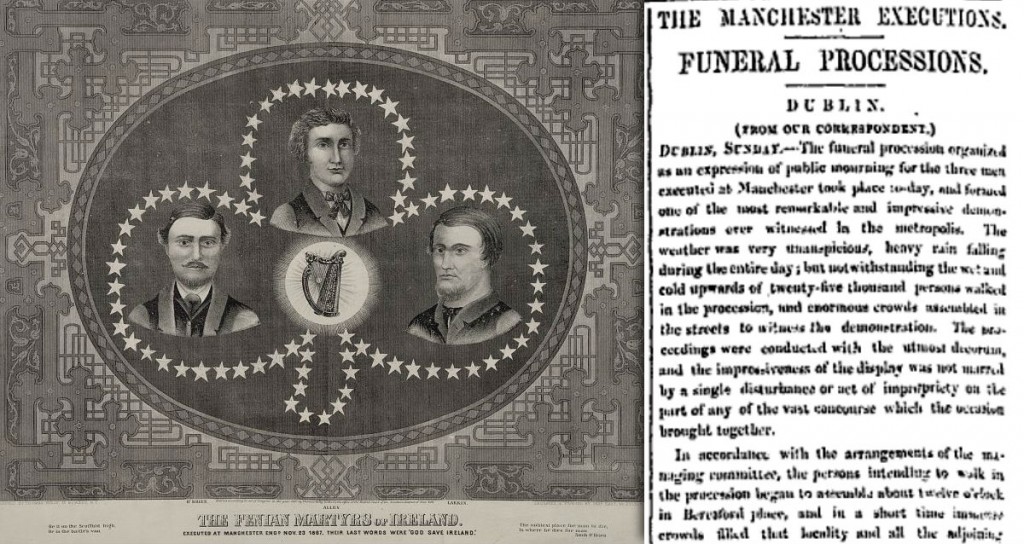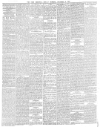
Manchester Martyrs
‘God save Ireland cried the heroes, God save Ireland say the all’ goes the popular Irish ballad song, which has its origins in an event which occurred in Manchester, England 152 years ago. The execution of William Allen, Michael O’Brien and Michael Larkin, who became known as the ‘Manchester Martyrs’, quickly became part of Irish Nationalist folklore.
On 18 September 1867 about 50 Irish Fenians, led by William Allen, attacked a prison van guarded by a large number of unarmed police at Hyde Road in Manchester with the aim of releasing two important Fenian prisoners, Thomas J. Kelly and Timothy Deasy. In the course of the raid, an unarmed police sergeant, Charles Brett, was shot dead. The British public were horrific at the attack and the murder of Brett and quickly called for the perpetrators to be brought to justice. More than twenty men were eventually tried for their part in the attack and Allen, Larkin and O’Brien sentenced to death. The execution took place on 23 November in front of an estimated 10,000 people.
The Irish public were horrified at the treatment of the three men and in particular, the way in which the British press reported on the execution. One Irish newspaper editor wrote:
The hatred with which the victims were regarded by the English people has had a strong effect in colouring the descriptions of the tragedy given by the papers, and, in many cases, the writers have been base enough to extort even from the death-struggles of the hapless men the materials for slandering their character and insulting their memories. These miserable efforts, however, cannot rob the scene of its solemn meaning and importance, and in the full belief that the slaying of Allen, Larkin, and O'Brien is an event deserving of permanent record, and one which, will exercise considerable influence on the future of Ireland, we devote nearly the whole of our issue today to the subject.

Main image; Editted by Irish Newspaper Archives; original By Unknown - This image is available from the United States Library of Congress's Prints and Photographs divisionunder the digital ID pga.01474.This tag does not indicate the copyright status of the attached work. A normal copyright tag is still required. See Commons:Licensing for more information., Public Domain, https://commons.wikimedia.org/w/index.php?curid=2980382

